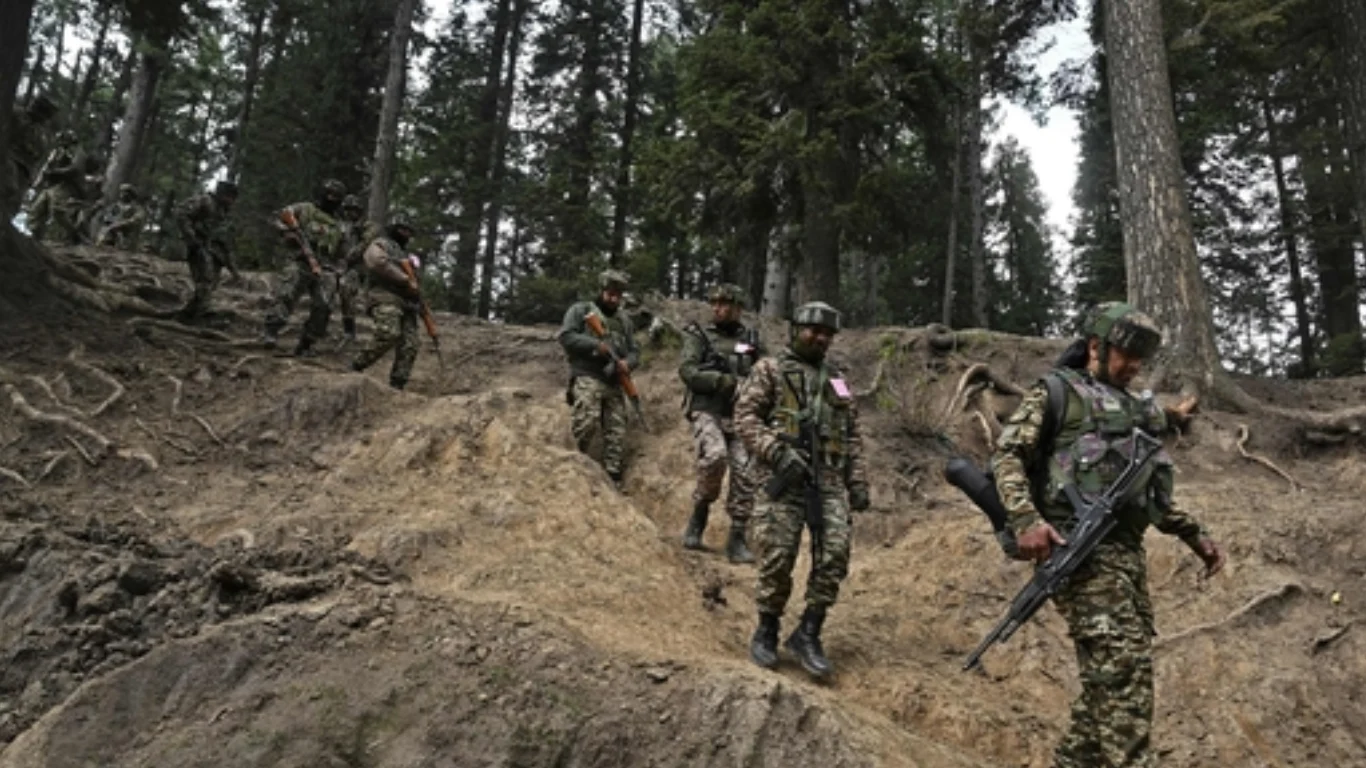
Tensions Escalate Along LoC as Pakistan Violates Ceasefire Ahead of Army Chief’s Visit; India Responds with Strong Countermeasures
In a significant escalation of tensions along the Line of Control (LoC), Pakistan Army troops opened fire at several locations in Jammu and Kashmir on Friday, reportedly attempting to breach the ceasefire agreement in place since February 2021. In response, the Indian Army retaliated effectively, according to individuals familiar with the development.
Sources told news agency PTI that multiple instances of small arms fire were reported at different sectors along the LoC, all initiated from the Pakistani side. “There were incidents of small arms firing at some places on the Line of Control initiated by Pakistan,” a source was quoted as saying.
This fresh bout of ceasefire violations occurred just hours before Indian Army chief General Upendra Dwivedi was scheduled to arrive in Srinagar and Udhampur. The timing of the provocation is being seen as a deliberate move by Pakistan to test India’s response ahead of the high-level military visit.
During his visit, General Dwivedi is expected to review the overall security scenario in Jammu and Kashmir, particularly the regions close to the LoC. He will meet senior Army commanders deployed in the Kashmir Valley, along with officials from various security agencies, to assess the ground situation.
According to defense officials, a key focus of General Dwivedi’s discussions will be the repeated ceasefire violations by the Pakistan Army in recent weeks, which have raised concerns about a potential escalation in cross-border hostilities.
This latest exchange of fire also follows a deadly terror attack in Pahalgam that claimed the lives of 26 civilians earlier this month. India has blamed Pakistan-based terror groups for orchestrating the attack, further straining already frayed ties between the two neighboring nations.
In the aftermath of the Pahalgam massacre, India has launched a series of robust diplomatic and strategic measures targeting Islamabad. The Indian government has accused Pakistan of harboring and supporting terror outfits that continue to carry out attacks across the border with impunity.
In a decisive move, the Cabinet Committee on Security (CCS), chaired by Prime Minister Narendra Modi and attended by key ministers including Home Minister Amit Shah, convened on Wednesday to chart a coordinated response to the worsening security situation.
One of the most significant outcomes of the CCS meeting was India’s decision to place the Indus Waters Treaty of 1960 in abeyance. The treaty, a landmark agreement on water-sharing between India and Pakistan brokered by the World Bank, will remain suspended until Pakistan withdraws its support for cross-border terrorism permanently.
In another bold move, the Indian government shut down the integrated Attari Check Post, halting cross-border trade and civilian movement via one of the most important land gateways between the two countries.
India also expelled several Pakistani High Commission officials, declaring them persona non grata. The officials have been ordered to leave the country within a week. This step underscores India’s intensifying diplomatic pushback against Pakistan’s alleged involvement in fueling unrest and violence in the Kashmir region.
Further tightening its stance, the Indian Ministry of External Affairs revoked all visas issued to Pakistani nationals under the SAARC Visa Exemption Scheme (SVES), which had previously allowed for easier travel for diplomats and certain categories of officials. Those still in India have been given a 48-hour deadline to leave the country.
These developments reflect a dramatic hardening of India’s policy toward Pakistan, signaling that the government is prepared to adopt a zero-tolerance approach to cross-border terror.
Security experts believe that the situation along the LoC is likely to remain tense in the coming weeks, especially with India ramping up counter-infiltration operations and surveillance along sensitive sectors of the border.
On the military front, Indian troops have been put on high alert in border districts, with reinforcements moved into forward positions. Surveillance drones and radar systems are being used more intensively to detect any infiltration attempts.
Meanwhile, defense analysts say Pakistan’s actions are aimed at diverting attention from growing internal instability while attempting to internationalize the Kashmir issue—an approach that has repeatedly failed at global forums in recent years.
The Indian Army has reiterated its commitment to maintaining peace along the LoC but has also warned that any provocation will be met with a proportionate and firm response.
“The Indian Army remains alert and fully prepared to safeguard the sovereignty and territorial integrity of the nation. Any act of aggression or ceasefire violation will be dealt with decisively,” a defense spokesperson said.
On the diplomatic front, India is reportedly in touch with key international partners to apprise them of the situation. Briefings have been shared with missions of major global powers, including the United States, France, and members of the United Nations Security Council.
As General Dwivedi continues his visit, a comprehensive assessment of security preparedness is expected. Sources suggest that the Indian Army is also reviewing its counter-terror strategy in Kashmir in light of recent developments.
The next few days will be crucial as the government and armed forces assess whether the current provocations mark a temporary spike in tension or the beginning of a larger pattern of cross-border hostility.
For now, the message from India is clear: it is ready to engage diplomatically, but any threat to its national security will be met with firm military and diplomatic measures.

















